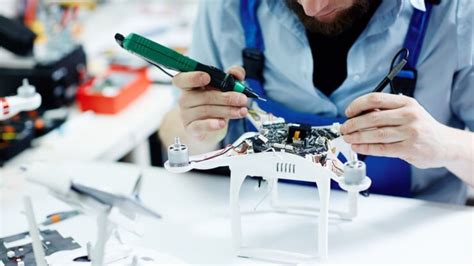Radio control (RC) technology has come a long way since its inception, transforming from a simple hobby to a multifaceted industry with applications in various fields. RC tech has revolutionized the way we interact with devices, machines, and even each other. In this article, we will delve into the world of RC tech, exploring its evolution, current trends, and future prospects.
Evolution of RC Tech
The concept of radio control dates back to the 19th century, but it wasn't until the mid-20th century that RC tech started gaining popularity. The first RC systems were used in military applications, such as remotely controlled aircraft and boats. These early systems were cumbersome, unreliable, and prone to interference.
However, with advancements in technology, RC systems became more sophisticated, reliable, and affordable. The introduction of transistors, integrated circuits, and computerized systems enabled the development of more efficient and user-friendly RC systems.

In the 1980s and 1990s, RC tech started gaining traction in the hobby market, with the introduction of RC cars, trucks, and aircraft. These early hobby-grade RC systems were relatively simple, with limited features and capabilities.
Modern RC Tech
Fast-forward to the present day, and we see a vastly different landscape in the world of RC tech. Modern RC systems are sleek, sophisticated, and feature-rich. They offer advanced features like GPS, telemetry, and autonomous capabilities.
The rise of drone technology has also played a significant role in shaping the RC industry. Drones have brought RC tech to the mainstream, with applications in fields like aerial photography, surveillance, and agriculture.

Current Trends in RC Tech
The RC industry is constantly evolving, with new trends and innovations emerging every year. Some of the current trends in RC tech include:
- FPV (First-Person View) Systems: FPV systems enable pilots to see the world from the perspective of their RC vehicle, using cameras and video transmission technology.
- Autonomous Systems: Autonomous RC systems use sensors, GPS, and computer algorithms to navigate and control RC vehicles without human intervention.
- Artificial Intelligence (AI): AI is being integrated into RC systems to enable advanced features like obstacle avoidance, autonomous navigation, and decision-making.

Applications of RC Tech
RC tech has numerous applications across various industries, including:
- Agriculture: RC drones are used for crop monitoring, precision agriculture, and aerial spraying.
- Construction: RC systems are used for site monitoring, inspection, and surveying.
- Military: RC systems are used for reconnaissance, surveillance, and combat operations.
- Hobby: RC systems are used for recreational purposes, such as racing, flying, and off-roading.

Future of RC Tech
The future of RC tech looks promising, with advancements in technology and innovation. Some of the emerging trends and technologies that will shape the future of RC tech include:
- 5G Connectivity: 5G networks will enable faster, more reliable, and low-latency communication between RC systems and controllers.
- Quantum Computing: Quantum computing will enable advanced AI and machine learning capabilities in RC systems.
- Internet of Things (IoT): IoT technology will enable seamless integration of RC systems with other devices and sensors.

Challenges and Limitations
Despite the advancements in RC tech, there are still challenges and limitations that need to be addressed. Some of the key challenges include:
- Interference and Security: RC systems are vulnerable to interference and hacking, which can compromise their safety and security.
- Regulations and Laws: RC systems are subject to various regulations and laws, which can limit their use and applications.
- Public Perception: RC systems are often perceived as toys or gadgets, which can limit their adoption in serious applications.







What is RC tech?
+RC tech refers to the technology used to control devices, machines, and vehicles remotely using radio waves.
What are the applications of RC tech?
+RC tech has numerous applications across various industries, including agriculture, construction, military, and hobby.
What is the future of RC tech?
+The future of RC tech looks promising, with advancements in technology and innovation, including 5G connectivity, quantum computing, and IoT.
We hope this comprehensive guide to RC tech has provided you with a deeper understanding of this fascinating technology. Whether you're a hobbyist, enthusiast, or industry professional, RC tech has something to offer. Share your thoughts and experiences with us in the comments below, and don't forget to share this article with your friends and colleagues!
